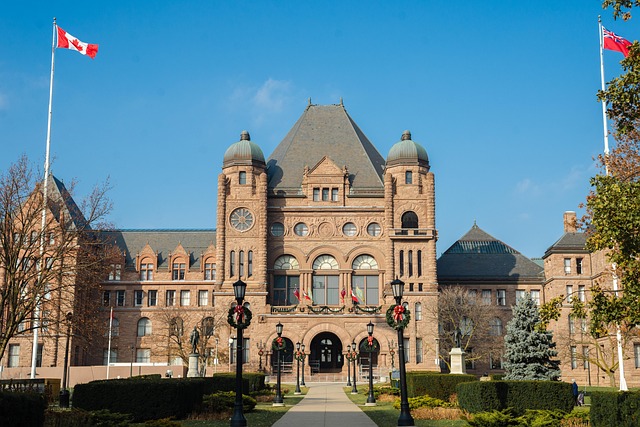In Oregon, grandparent visitation rights are governed by state law (Oregon Revised Statutes Chapter 109), focusing on the best interests of both the grandchild and parents. Courts consider factors like relationship strength, child well-being, parental cooperation, safety, travel logistics, and historical circumstances to determine suitable visitation privileges. The process involves a comprehensive review by the court, ensuring balanced decisions that prioritize family dynamics and the grandchild's welfare. Grandparents seeking legal visitation should consult an expert attorney for guidance.
“In Oregon, grandparent visitation rights are a vital aspect of family law, offering a framework to maintain familial connections. This article provides comprehensive guidance on legal visitation for grandparents, focusing on Oregon’s unique regulations. We explore the state’s legal framework, including relevant statutes and case law, to understand factors influencing visitation decisions.
From court involvement to practical steps for grandparent-child bonding, this guide covers essential aspects. Discover the process, learn your rights, and navigate the system effectively with our detailed breakdown.”
- Understanding Grandparent Visitation Rights in Oregon
- Legal Framework and Relevant Laws
- Factors Affecting Visitation Decisions
- The Role of the Court in Grandparent Visits
- Navigating the Process: Steps for Grandparents
Understanding Grandparent Visitation Rights in Oregon

In Oregon, grandparent visitation rights are governed by state law, offering a framework for ensuring meaningful connections between grandchildren and their extended family. The state recognizes the importance of familial bonds and provides legal avenues for grandparents to seek visitation when they’ve been cut off from their grandchildren. According to Oregon Revised Statutes (ORS), grandparents have the right to request legal visitation if they can demonstrate a substantial relationship with the child, which was disrupted due to a change in circumstances.
These rights are not automatic but are earned through a court process that considers the best interests of both the grandchild and the grandparent. Grandparents seeking legal visitation must file a petition in court, presenting evidence of their parental bond with the child. The court will evaluate factors such as the quality and frequency of interactions, the impact on the child’s well-being, and any barriers to visitation. This process ensures that decisions regarding grandparent visitation are fair, balanced, and centered around what is best for the child involved.
Legal Framework and Relevant Laws

In Oregon, the legal framework governing grandparent visitation is established through a series of state laws and court decisions. The primary statute focusing on this matter is Oregon Revised Statutes (ORS) Chapter 109, which outlines the rights and procedures for grandparent visitation. This chapter recognizes that children often benefit from meaningful relationships with their extended family, including grandparents.
The relevant laws emphasize that while parents have primary decision-making authority, grandparents can seek legal visitation if it’s in the best interest of the child. ORS § 109.056 outlines specific factors courts consider when determining grandparent visitation, such as the relationship between the grandchild and grandparent, the child’s overall well-being, and any existing parenting plans. These laws provide a structured approach to ensure grandparent visitation rights are balanced with the family’s privacy and stability.
Factors Affecting Visitation Decisions

In Oregon, factors affecting legal visitation for grandparents are multifaceted and considered on a case-by-case basis. Court decisions regarding grandparent visitation are influenced by several key elements, including the child’s best interests, the existing relationship between the grandchild and grandparent, and any potential impact on the family’s stability. The court assesses the parent’s willingness to facilitate a healthy relationship between the grandchild and grandparent, as well as the grandparent’s ability to provide a safe and nurturing environment.
Additional considerations include the grandchild’s wishes (if old enough), the grandparent’s history of involvement in the child’s life, and any relevant changes in circumstances since the last visitation order. Factors such as distance, travel arrangements, and the grandparents’ capacity to cope with potential challenges are also taken into account. These comprehensive assessments aim to ensure that visitation decisions promote the well-being and relationship between grandchildren and their grandparents while maintaining the integrity of family dynamics.
The Role of the Court in Grandparent Visits

In Oregon, when it comes to grandparent visitation, the court plays a pivotal role in ensuring that the best interests of both the child and their parents are considered. The court evaluates each case individually, examining factors such as the relationship between the grandchild and grandparent, the current living arrangements, and any potential impact on the child’s well-being. This careful assessment helps determine the appropriate level of visitation rights for grandparents, ensuring a balanced approach that respects family dynamics.
The legal framework in Oregon provides a structured process for grandparent visitation, allowing courts to make informed decisions. They may grant specific visitation privileges, set guidelines for scheduling, and even order joint custody arrangements if deemed necessary. This legal guidance ensures that grandparents have the opportunity to maintain meaningful connections with their grandchildren while also considering the parental rights and responsibilities.
Navigating the Process: Steps for Grandparents

Navigating the process of securing legal visitation as a grandparent in Oregon involves several key steps. Firstly, consult with an experienced family law attorney who specializes in grandparent rights. They can provide tailored guidance based on your unique circumstances and help you understand the legal framework surrounding visitation. This initial consultation is crucial for gaining insights into the state’s requirements and available options.
Next, gather essential documents such as birth certificates, marriage licenses, and any previous court orders related to custody or visitation. These will be necessary to establish your relationship with the grandchild and support your case. Your lawyer can assist in preparing a comprehensive petition outlining your request for visitation and providing justification based on Oregon’s legal standards. This structured approach ensures a smoother process, increasing your chances of a favorable outcome regarding legal visitation grandparents’ rights.
